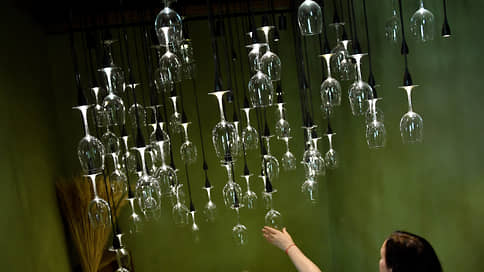The owner of Ostankino invested in the restaurant automation system
[ad_1]

The departure of foreign automation systems for restaurants from Russia stimulated the interest of new players in this market. A similar project was launched by Mikhail Popov, the owner of the Ostankino meat products manufacturer, hoping to take 15% of the market with a turnover of 8 billion rubles. in year. Restaurateurs are reluctant to switch from one system to another, and a project can become profitable only due to scale, market participants say.
A Pos LLC, the owner of the Ostankino meat products manufacturer Mikhail Popov, has launched an automation system for Absolut POS restaurants. This follows from the data on the project website and the Unified State Register of Legal Entities. The system combines products for receiving orders from guests, transferring orders to the kitchen, services for analytics, marketing, inventory control. For institutions with a staff of up to three people and one smartphone, the system is free, for cafes and restaurants up to 150 square meters. m with five employees in the hall – 4.99 thousand rubles. per month, prices for larger businesses are discussed individually, according to the Absolut POS website.
Alexei Smirnov, regional director of the company in Russia and Belarus, noted that in 2022 several foreign players left Russia, occupying about 15% of the market, which created demand for new solutions. After the outbreak of hostilities in Ukraine, work in the Russian Federation was stopped, in particular, by the Poster system, which serves 10,000 establishments. According to Mr. Smirnov, in the next three years, the creators of Absolut POS expect to cover more than 25 thousand points, occupying 15% of the services market, the turnover of which is estimated at 8 billion rubles. in year. According to a Kommersant source familiar with the project, about 140 million rubles were invested in Absolut POS.
RestCon CEO Elena Perepelitsa says that in Russia the main shares in the restaurant automation market are occupied by local iiko, 1C and r_keeper systems, but Absolut POS has a chance to fill its niche. The co-owner of the Tigrus holding (Osteria Mario, Shvili and Bar BQ Cafe) Henrik Winter believes that Absolut POS, with its convenient functionality and reasonable price, can be interesting for small establishments that do not want to work with complex software. But single small establishments poorly implement such solutions, preferring to work independently, adds Franshiza.ru expert Anna Rozhdestvenskaya.
Mikhail Goncharov, the founder of the Teremok network, points out that although cafes and restaurants that used Poster previously switched to other systems, they are not always satisfied with them, so the market will benefit from the appearance of a new system. Restaurateurs have a request for simplification, while r_keeper and iiko offer outdated and overly complex functions, Mr. Goncharov explains. In 1C and r_keeper declined to comment, in iiko “Kommersant” did not respond.
President of the Federation of Restaurateurs and Hoteliers Igor Bukharov adds that restaurateurs prefer to stay on the system they are already working with, as competitors offer approximately the same conditions, and the transition from one to another requires costs. According to Elena Perepelitsa, the main problem is to provide high-quality support for restaurateurs, since no one needs the system itself. Competing with players who already have decent tech support can be problematic, she points out. Mikhail Goncharov notes that simple automation systems are inexpensive, which means that capital is required to maintain the service in the first two or three years, during which it is necessary to take a serious market share. Without scaling, it will not be possible to reach profitability, he adds.
The restaurant market is now recovering from the contraction. In the second quarter, the number of established companies in this industry grew by 25% year-on-year after a decline of 11% in the first quarter, calculated in Kontur.Focus. But market participants are waiting for a slowdown in the pace of openings by the beginning of autumn (see Kommersant on July 6).
[ad_2]
Source link





